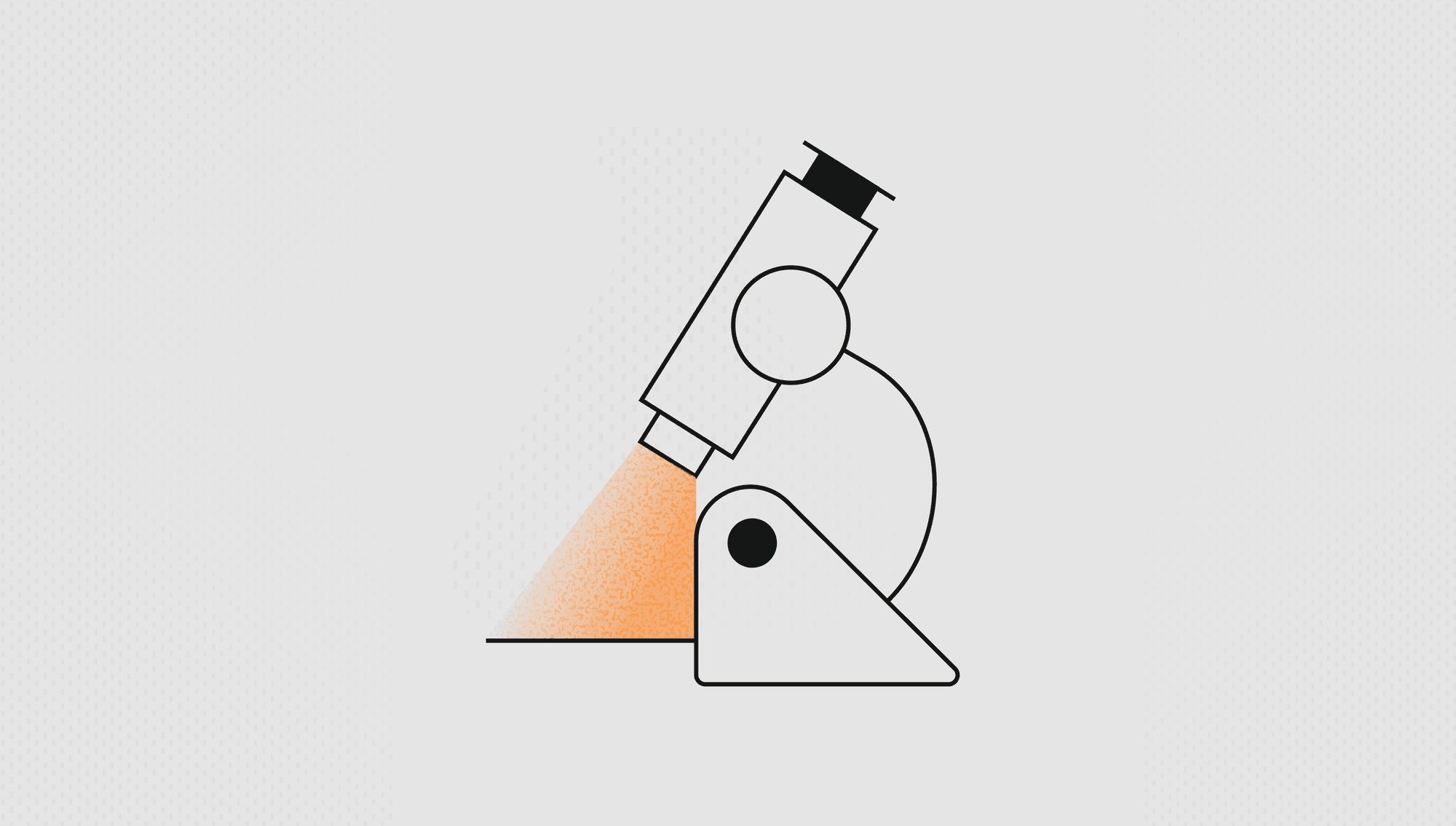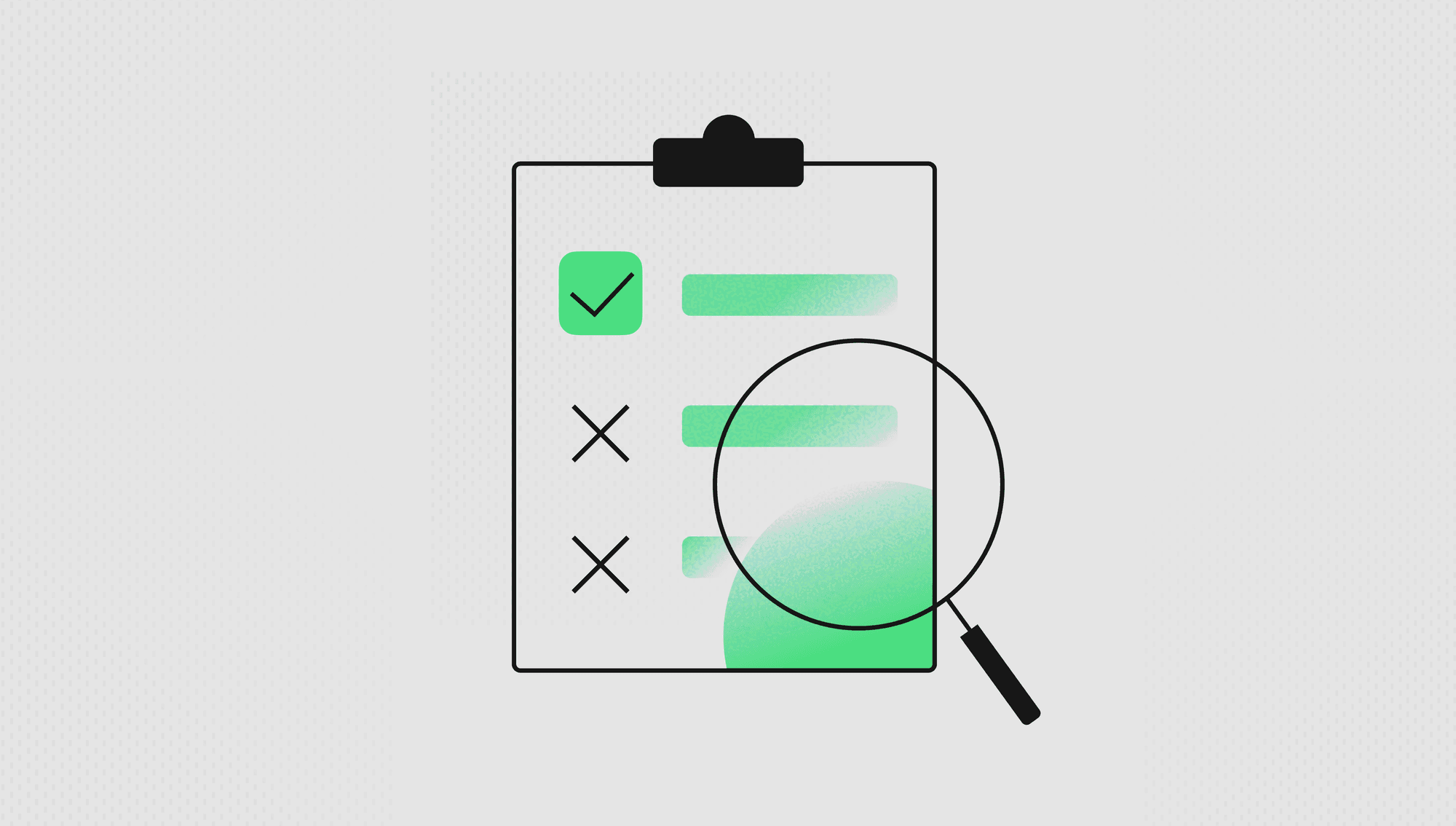Labelbox•July 23, 2024
Enhanced synthetic data generation with human-in-the-loop supervision using Llama 3.1 and Labelbox
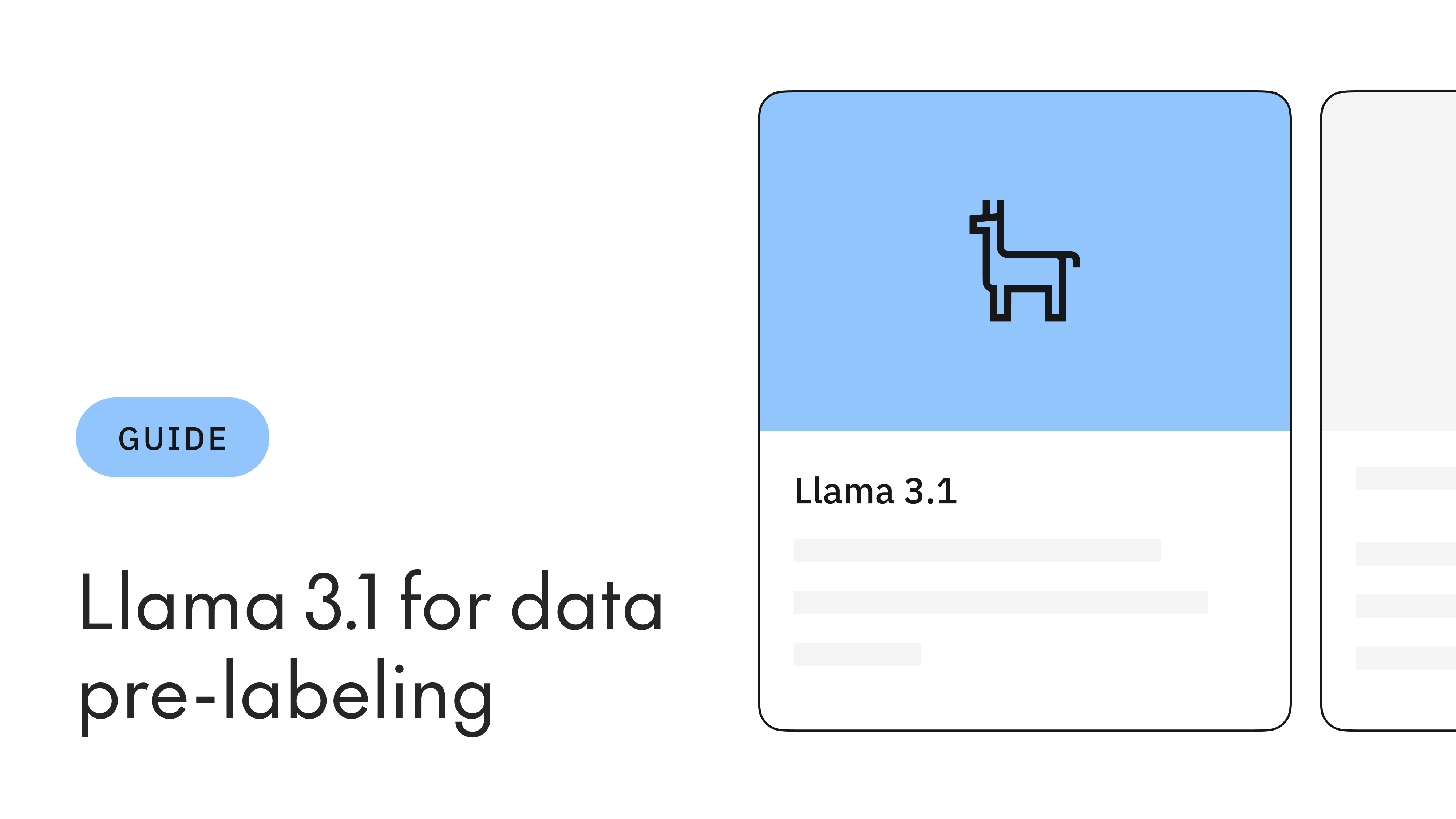
Meta’s recent release of Llama 3.1 marks a significant milestone in the world of open-source AI. In this post, let’s explore how Labelbox can be used to enhance data-labeling workflows and power fine-tuning services by capitalizing on the power of this frontier model.
What Llama 3.1 has to offer
Surpassing closed-source competitors on benchmarks like MMLU, GPQA, and Human Eval and supporting a context length of 128K tokens, the Llama 3.1 models excel in general knowledge, steerability, mathematical reasoning, tool use, and multilingual translation. Key use cases include synthetic data generation, model distillation, and hyperfast inference, ultimately powering task-specific applications such as long-form summarization, multilingual agents, and coding assistants.
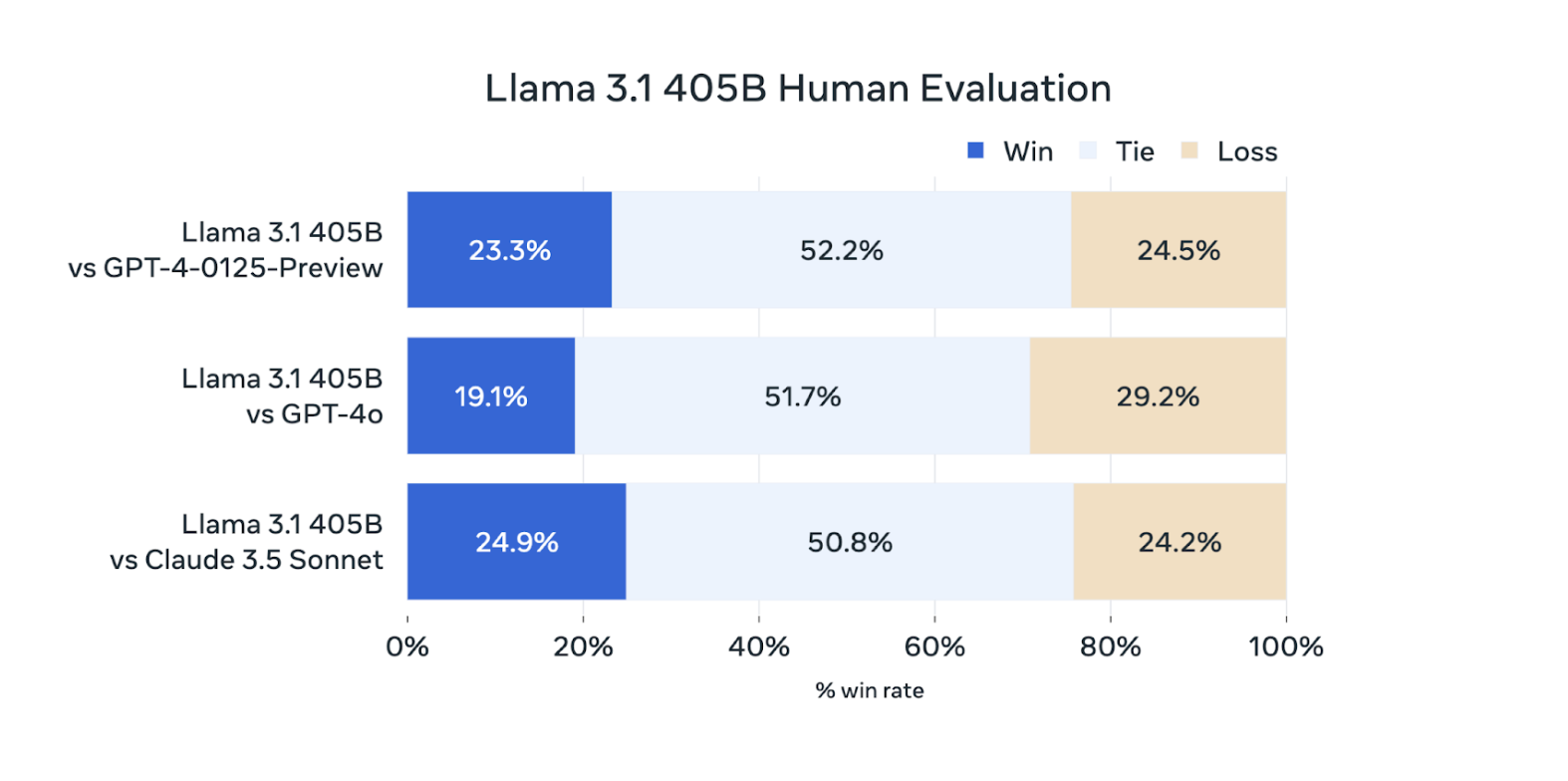
From Meta
Now available in Labelbox
Meta’s commitment to open-source AI is a cornerstone of Llama 3.1’s significance. By making such a powerful model freely available, Meta is fostering innovation and enabling developers worldwide to build upon and improve AI technologies. This aligns with our mission to empower AI teams with the tools they need to create high-quality, domain-specific models efficiently—available in our Model Foundry product.
How to use Llama 3.1 to enhance Labelbox workflows
Labelbox’s suite of tools harnesses the power of Llama 3.1 by offering a comprehensive workflow for data curation, synthetic pre-labels, and human-in-the-loop refinement. Here's how Labelbox is capitalizing on Llama 3.1 for improving AI development pipelines:
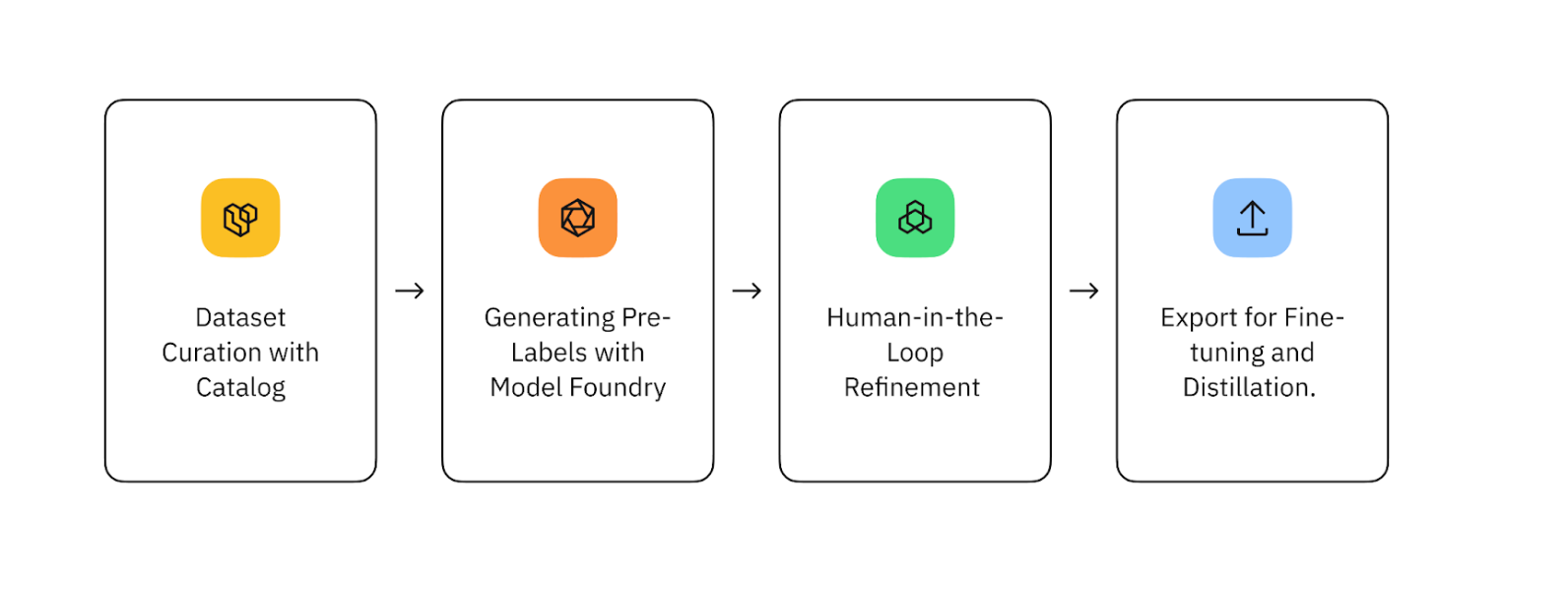
- Dataset curation with Catalog: Labelbox Catalog allows teams to curate diverse datasets for various use cases, including entity recognition, classification, and free-form chat. This step is crucial for preparing high-quality training data tailored to specific domains.
- Generate pre-labels with Model Foundry: Available on our platform already, Llama 3.1 can generate synthetic pre-labels at scale, significantly accelerating the data labeling process. This AI-assisted approach can dramatically reduce the time and cost associated with creating large, labeled datasets.
- Human-in-the-loop refinement: While AI-generated labels are a great starting point, human-in-the-loop expertise remains crucial for ensuring quality. Labelbox Boost Labeling Services provides access to domain experts who can review and refine the synthetic data, ensuring its quality and relevance. Labelbox’s platform incorporates robust quality control measures, including our Benchmark and Consensus tools, to maintain high standards in the labeled data.
Export for fine-tuning and model distillation: The refined, high-quality datasets can be easily exported for various downstream tasks, including fine-tuning Llama 3.1 for domain-specific applications or performing knowledge distillation to create smaller, more efficient models.
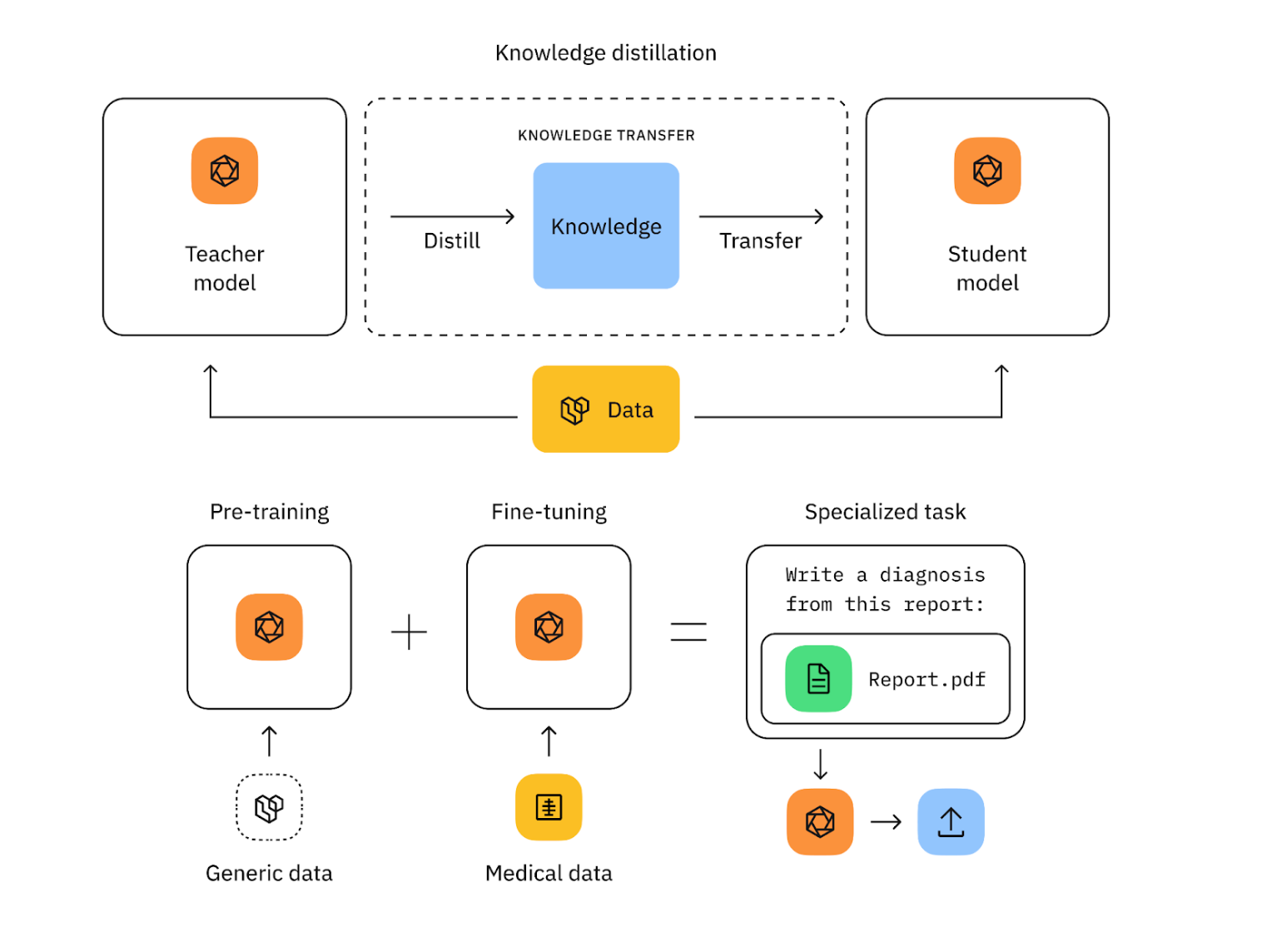
Transformative use cases
The integration of Llama 3.1 with Labelbox's workflow opens up exciting possibilities for unlocking generative AI:
- Model distillation: By leveraging our high-quality labels, teams can effectively distill knowledge from the large 405B model into smaller, more deployable versions. This process, similar to projects like MiniLLM and Baby Llama, involves using the Llama 3.1 405B model as a teacher to generate synthetic data that fine-tunes smaller Llama models like the 70B or 8B, making deployment more feasible while maintaining high performance.
- Domain-specific fine-tuning: The combination of synthetic data generation and human refinement through Labelbox's platform enables precise fine-tuning of Llama 3.1 for specialized tasks. This is particularly useful for industry-specific applications such as healthcare diagnostics, financial analysis, and customer service automation, facilitated by platforms like Google Cloud’s VertexAI and Databricks’s MosaicAI.
- Rapid prototyping: The ease of integration and AI-assisted labeling allows for quick experimentation, diagnostics, and iteration using our Model product. Teams can enrich their datasets and automate critical data tasks, creating high-quality data to diagnose, debug, and optimize their fine-tuned models.
Get started today
The release of Llama 3.1 represents a significant advance within open-source AI. When combined with Labelbox's platform, AI teams can accelerate the development of sophisticated, domain-specific models with greater efficiency and quality through using our dataset curation, synthetic pre-labels, and human-in-the-loop QA.
If you’re interested in trying out Llama 3.1 in Labelbox, sign up for a free Labelbox account to try it out or contact us to learn more and we’d love to hear from you.

 All blog posts
All blog posts
